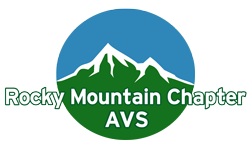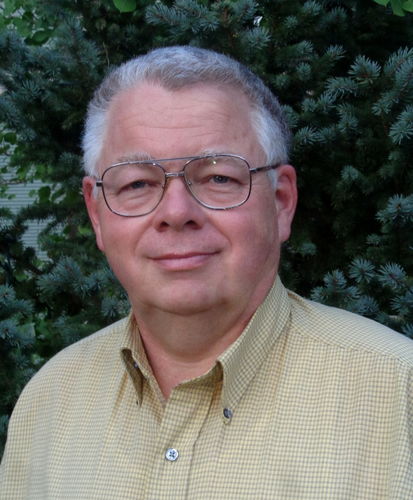SHORT COURSES AND WORKFORCE DEVELOPMENT
Presented by the American Vacuum Society — Rocky Mountain Chapter
We have a long history of teaching vacuum-related short courses for workforce development. Onsite offerings can be arranged for a larger number of students, in addition to courses taught at our annual symposium.
Short Courses Novermber 5-7, 2025
We developed a program of AVS Short Courses that will be offered November 5-7, 2025 in conjunction with the RMC AVS Symposium. The 2-day Overview of Vacuum Technology will be offered November 5-6, as well as courses on topics like leak detection, vacuum system design, thin films and deposition.
These courses align with goals for workforce training like TEC-P 2.0 Colorado (AVS Short Courses qualify for TecP grants), and workforce training related to the CHIPS for America act, which established large investments and incentives to support U.S. semiconductor manufacturing, research and development, and supply chain security related to the U.S. semiconductor industry.
Got a request or need more information?
RMC AVS will provide on-site short courses for local companies. If you or your company has specific requests or need additional information, please contact neil_peacock@avs.org.
General Information
Cost Per Course:
- AVS Platinum Member
$1,045 (2-day course); $715 (1-day course) - AVS Gold or Silver Member — Click Here to Upgrade to Platinum Now and Save All Year
$1,120 (2-day course); $790 (1-day course) - Non-Member
$1,120 (2-day course); $790 (1-day course) - Full-time Student/Requires Student I.D.
$400 (2-day course); $200 (1-day course) - Multi-Course and Group Discounts Available
Contact Heather Korff, heather@avs.org
Course Includes: Course notes and lunch.
Location:
Double Tree by Hilton-Westminster
8773 Yates Drive
Westminster, CO 80031-3680
Course Times: 8:30 a.m.-5:00 p.m. (Mountain Time)
Check your timezone!
Save with AVS Membership
Save $75 per AVS Short Course with an AVS Platinum Membership. The savings from just two courses is equivalent to the price of an AVS Platinum Membership, which provides discounts on conferences, short courses and webinars as well as access to the AVS publications and technical libraries, career services, and more. Don’t miss out on these savings. Email Angela Klink, AVS Member Services Administrator, angela@avs.org for your discount code or to upgrade to Platinum.
Annual Symposium
We are excited to invite you to our signature event, the AVS Rocky Mountain Chapter Annual Symposium on Thursday, November 6, 2025. You can visit vendor exhibits, attend an introduction to vacuum tutorial, hear about science during short talks, enjoy free lunch, discuss new ideas at the student poster session, and socialize during a happy hour that includes beer, wine, appetizers, and door prizes.
Short course registrants are automatically registered and welcome to participate.
2025 SHORT COURSES
An Overview of Applied Vacuum Technology
Date: Wednesday-Thursday, November 5-6, 2025
Time: 8:30 a.m.-5:00 p.m. MT
Course Objectives
- Be introduced to the fundamental concepts of vacuum technology.
- Learn about common vacuum system hardware and instrumentation, including pumps, gauges, flanges, valves, and feedthroughs.
- Understand applications and processes involving vacuum technology.
- Benefit from a “just right” two-day course (when you don’t have the time or the need to attend a four-day introductory course).
Course Description
The course begins with a definition of vacuum and a description of the physical conditions existing in a vacuum environment. Following this introduction will be a discussion of gases at low pressures and the interactions between gases and solids. The phenomena of gas flow though vacuum systems will then be examined. The primary components of vacuum systems, with an emphasis on pumps and gauges, will be described.
Requirements for materials compatible with the vacuum environment will be discussed. Various sealing techniques will be described, including coverage of all demountable flange systems in common use today. Common vacuum system configurations and operational procedures will be outlined. The course will finish with a description of vacuum leak detection methods and the far-reaching applications of vacuum technology today.
Ample time for questions and discussion will be scheduled. A comprehensive list of references will be provided for those wishing to learn more detailed information about specific areas. The emphasis of the course will be to provide practical information for individuals with minimal training in vacuum technology.
Who Should Attend?
Managers, technicians, engineers, and scientists who desire an introduction to the concepts, hardware, and instrumentation used in applied vacuum technology today. Those interested in a short review of vacuum basics will also find this course valuable.
Tim Gessert
Instructor
Managing Member
Gessert Consulting, LLC
Neil Peacock
Consultant
Pine Place Consulting, LLC
Have a request for RMCAVS short courses?
For more information or to suggest/request a short course, please contact:



